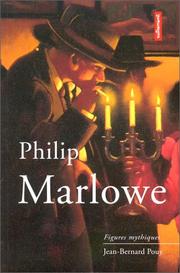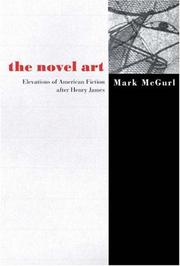| Listing 1 - 6 of 6 |
Sort by
|
Book
ISBN: 2878583760 9782878583762 Year: 2011 Publisher: Paris V. Hamy
Abstract | Keywords | Export | Availability | Bookmark
 Loading...
Loading...Choose an application
- Reference Manager
- EndNote
- RefWorks (Direct export to RefWorks)
Valentine Vendermot, une petite dame en blouse a fleurs, arrive d'Ordebec, prés de Lisieux, pour demander de l'aide à la Brigade criminelle de Paris. Elle explique au commissaire Adamsberg que sa fille, Lina, a vu passer la nuit, dans la forêt d'Alance, l'Armée furieuse, une horde terrifiante de cavaliers morts-vivants. Selon la légende, qui remonte au XIe siècle, ils traversent l'Europe du Nord pour enlever des hommes restés impunis et les faire mourir dans les trois semaines. Lina a vu les revenants s'emparer de quatre hommes. Elle en a reconnu trois. Délaissant son enquête sur l'incendie criminel d'une voiture avec un magnat de la finance au volant, Adamsberg part pour la Normandie ...
Book
ISBN: 9782864326311 2864326310 Year: 2011 Publisher: Lagrasse : Verdier,
Abstract | Keywords | Export | Availability | Bookmark
 Loading...
Loading...Choose an application
- Reference Manager
- EndNote
- RefWorks (Direct export to RefWorks)
Book
ISBN: 2732038121 Year: 2004 Publisher: Paris : Sorbier,
Abstract | Keywords | Export | Availability | Bookmark
 Loading...
Loading...Choose an application
- Reference Manager
- EndNote
- RefWorks (Direct export to RefWorks)
Detective and mystery stories --- Roman policier --- History and criticism --- Histoire et critique --- Detective novel --- Young readers --- Criticism

ISBN: 2862609021 9782862609027 Year: 1999 Publisher: Paris Autrement
Abstract | Keywords | Export | Availability | Bookmark
 Loading...
Loading...Choose an application
- Reference Manager
- EndNote
- RefWorks (Direct export to RefWorks)
Detective and mystery stories, American --- Detective and mystery films --- American fiction --- History and criticism --- History and criticism --- Film adaptations --- Chandler, Raymond, --- Chandler, Raymond, --- Marlowe, Philip --- Characters --- Philip Marlowe. --- Film adaptations. --- Detective novel --- Cinema --- Famous hero
Book
ISBN: 1644697858 1644697866 Year: 2022 Publisher: Boston, MA : Academic Studies Press,
Abstract | Keywords | Export | Availability | Bookmark
 Loading...
Loading...Choose an application
- Reference Manager
- EndNote
- RefWorks (Direct export to RefWorks)
A chapter-by-chapter guide to Dostoevsky's most popular novel that reveals how Crime and Punishment works. Narrative strategy, why the novel is not a whodunit but whydunit, and clear explanations of the novel's ideological debates.
Russian literature --- History and criticism. --- Dostoyevsky, Fyodor, --- Criticism and interpretation. --- 19th-century ideological debates in Russia. --- Crime and Punishment as a detective novel. --- Dostoevsky studies. --- Dostoevsky’s Crime and Punishment. --- Fyodor Dostoevsky. --- Narrative strategy. --- Shame studies. --- teaching strategies for Crime and Punishment. --- the Petersburg theme in Russian literature. --- the Russian novel.

ISBN: 0691088985 0691088993 0691214832 Year: 2001 Publisher: Princeton, N.J. Princeton University Press
Abstract | Keywords | Export | Availability | Bookmark
 Loading...
Loading...Choose an application
- Reference Manager
- EndNote
- RefWorks (Direct export to RefWorks)
Once upon a time there were good American novels and bad ones, but none was thought of as a work of art. The Novel Art tells the story of how, beginning with Henry James, this began to change. Examining the late-nineteenth century movement to elevate the status of the novel, its sources, paradoxes, and reverberations into the twentieth century, Mark McGurl presents a more coherent and wide-ranging account of the development of American modernist fiction than ever before. Moving deftly from James to Stephen Crane, Edith Wharton, Gertrude Stein, William Faulkner, Dashiell Hammett, and Djuna Barnes among others, McGurl argues that what unifies this diverse group of ambitious writers is their agonized relation to a middling genre rarely included in discussions of the fine arts. He concludes that the new product, despite its authors' desire to distinguish it from popular forms, never quite forsook the intimacy the genre had long cultivated with the common reader. Indeed, the ''art novel'' sought status within the mass market, and among its prime strategies was a promotion of the mind as a source of value in an economy increasingly dependent on mental labor. McGurl also shows how modernism's obsessive interest in simple-mindedness revealed a continued concern with the masses even as it attempted to use this simplicity to produce a heightened sophistication of form. Masterfully argued and set in elegant prose, The Novel Art provides a rich new understanding of the fascinating road the American novel has taken from being an artless enterprise to an aesthetic one.
Fiction --- American literature --- anno 1900-1999 --- 820-3 "18/19" --- American fiction --- -Fiction --- Metafiction --- Novellas (Short novels) --- Novels --- Stories --- Literature --- Novelists --- Engelse literatuur: proza--Hedendaagse Tijd --- History and criticism --- Technique --- Philosophy --- James, Henry --- -Influence --- History and criticism. --- Technique. --- 820-3 "18/19" Engelse literatuur: proza--Hedendaagse Tijd --- -Engelse literatuur: proza--Hedendaagse Tijd --- -Literature --- -820-3 "18/19" Engelse literatuur: proza--Hedendaagse Tijd --- Fiction writing --- Writing, Fiction --- Authorship --- James, Henry, --- Influence. --- Dzheĭms, G. --- Dzheĭms, Genri, --- Jeimsŭ, Henri, --- Джеймс, Генри, --- ג׳יימס, הנרי, --- ג׳ײמס, הנרי, --- Τζειος, Χενρι, --- جميس، هينري، --- جيمز، هنرى --- LITERARY CRITICISM / American / General. --- pastoral. --- naturalism. --- nativism. --- immigration. --- imagetext. --- high art. --- gender. --- education. --- detective novel. --- anthropology;avant-garde. --- Stein, Gertrud. --- Oliphant, Margaret. --- Mencken. --- McKeon, Michael. --- Malraux, Andre. --- Liveright, Horace. --- Levine, Lawrence. --- Kreyliug, Michael. --- Knopf. --- Joyce, James. --- Jameson, Fredric. --- Hemingway, Ernest. --- Grimwood, Michael. --- Gather, Willa. --- Fugitive-Agrarians. --- Fried, Michael. --- Debray, Regis. --- Conrad, Joseph. --- Bush, Ronald. --- Black Mask. --- Children --- Education, Primitive --- Education of children --- Human resource development --- Instruction --- Pedagogy --- Schooling --- Students --- Youth --- Civilization --- Learning and scholarship --- Mental discipline --- Schools --- Teaching --- Training --- Immigration --- International migration --- Migration, International --- Population geography --- Assimilation (Sociology) --- Colonization --- Anti-Catholicism --- Catholics --- Materialism --- Mechanism (Philosophy) --- Positivism --- Science --- Education --- Fugitive–Agrarians. --- anthropology. --- avant-garde. --- ROMAN AMERICAIN --- JAMES (HENRY), 1843-1916 --- ROMAN --- 20E SIECLE --- HISTOIRE ET CRITIQUE --- INFLUENCE --- TECHNIQUE
| Listing 1 - 6 of 6 |
Sort by
|

 Search
Search Feedback
Feedback About UniCat
About UniCat  Help
Help News
News